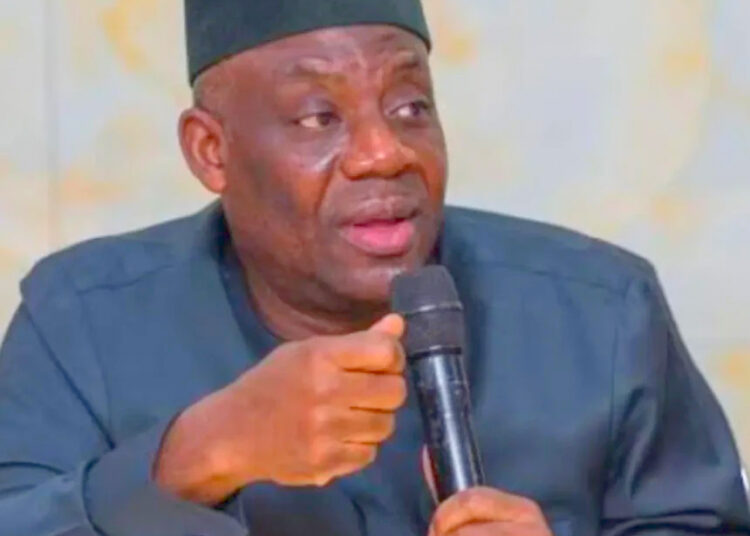The Academic Staff Union of Universities (ASUU) has warned the Federal Government to urgently address prolonged issues in Nigeria’s university system or risk another industrial crisis.
Reacting to recent comments credited to the Minister of Education, Dr. Tunji Alausa, that “not again ever in this country will ASUU or tertiary institutions, trade unions, teachers, lecturers go on strike,” the union said while it shares the Minister’s optimism on dialogue, government must match words with concrete action.
In a statement on Saturday by its president, Professor Christopher Piwuna, ASUU said government needs to go beyond words and act on the outstanding issues.
The Union lamented that many lecturers teach students on empty stomachs and work in libraries and laboratories bereft of essential electronic and physical journals, books, chemicals and reagents.
“Our members feel forgotten, shamed and demoralised by past and present governments. Yet elite Nigerians are quick to blame universities for producing unemployable graduates while ignoring the systemic neglect that stifles innovative research,” Professor Piwuna said.
ASUU also accused successive governments of undermining collective bargaining, despite the protections in International Labour Organisation (ILO) Conventions 98 and 154.
The Union said government was foot-dragging on renegotiating the 2009 FGN-ASUU Agreement, despite receiving a draft from the Alhaji Yayale Ahmed Committee since December 2024.
“Every major dispute we have had since 2012 stems from government’s refusal to honour the 2009 Agreement.
“Instead of respecting agreed provisions on conditions of service, funding, university autonomy and academic freedom, governments have resorted to platitudes and tokenism,” Piwuna noted.
The Union also criticised government’s handling of lecturers’ salaries and promotions, condemning the Integrated Personnel and Payroll Information System (IPPIS) as “corruption-laden.”
“They push academics to the point of strike, then turn around to withhold their salaries. Lecturers are promoted but cash backing is withheld for years. How can a government that punishes citizens for demanding what is rightfully theirs claim to uphold democratic culture?” he queried.
On governance issues in universities, ASUU expressed concern over what it described as political interference in the appointment of Vice-Chancellors.
It cited the case of the Acting Vice-Chancellor of Alvan Ikoku University of Education, whose promotions, the union alleged, were “fraught with contradictions,” warning that similar incidents were emerging in other federal universities.
It called on all genuine patriots to impress it on the Federal and State Governments to address lingering labour issues without delay.
“Nigerian academics are tired of excuses and endless MoUs. No memorandum or ‘discussion’ can replace a Collective Bargaining Agreement that addresses staff welfare and provides the environment for productive academic work. The time to act is now,” Piwuna maintained.










